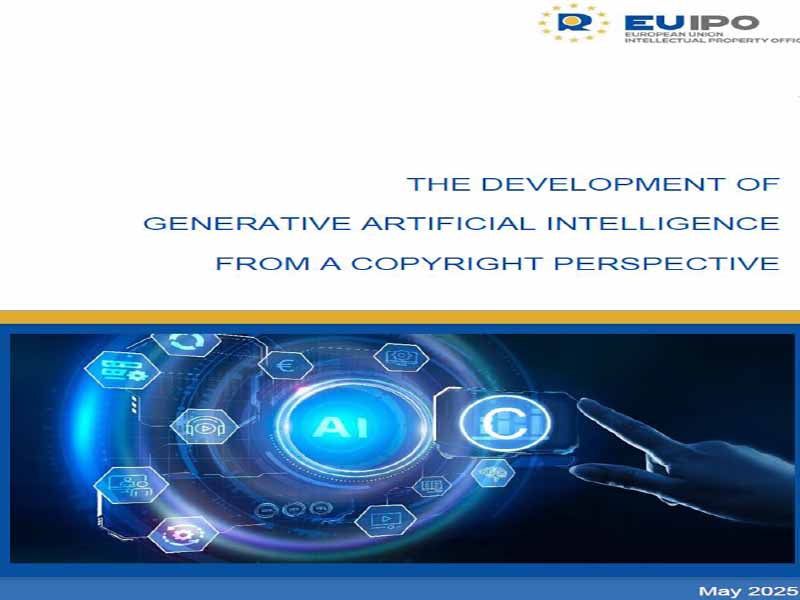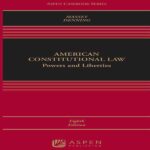- عنوان کتاب: The development of Generative Artificial Intelligence from a copyright perspective
- نویسنده: European Union Intellectual Property Office
- حوزه: هوش مصنوعی مولد, کپی رایت
- سال انتشار: 2025
- تعداد صفحه: 436
- زبان اصلی: انگلیسی
- نوع فایل: pdf
- حجم فایل: 6.24 مگابایت
این گزارش، تحلیلی فنی در مورد رابط بین هوش مصنوعی مولد (GenAI) و قانون حق نشر اتحادیه اروپا ارائه میدهد. این گزارش توسط دفتر مالکیت معنوی اتحادیه اروپا (EUIPO) به عنوان بخشی از کار رصدخانه اروپایی نقض حقوق مالکیت معنوی («رصدخانه»)، که شبکهای از متخصصان دولتی و خصوصی و ذینفعان متخصص است، منتشر شده است. در سالهای اخیر، توسعه فناوریهای هوش مصنوعی (AI)، به ویژه GenAI، در مرکز توجه و بحث عمومی قرار گرفته است. سیستمهای GenAI، از جمله مدلهای زبان بزرگ (LLM)، از مقادیر زیادی از دادههای آموزشی برای توسعه فرآیندهای الگوریتمی استفاده میکنند که میتوانند محتوای جدیدی با ویژگیهای مشابه تولید و خروجی دهند. تحولات سریع در این فناوریها و استفاده و استقرار گسترده آنها منجر به افزایش نگرانیها در مورد پیامدهای مربوط به حق نشر شده است. در حالی که این فناوریها نمایانگر اشکال جدیدی از نوآوری هستند و پتانسیل تغییر صنایع خلاق را دارند، اما با منافع دارندگان حق نشر نیز تنش ایجاد میکنند. در هر صورت، چنین فناوریهایی باید به شیوهای سازگار با قوانین مالکیت معنوی قابل اجرا توسعه یافته و مدیریت شوند. استراتژی هوش مصنوعی اروپا که توسط کمیسیون اروپا در سال ۲۰۱۸ منتشر شد، تأکید کرد که «بازتاب تعاملات بین هوش مصنوعی و حقوق مالکیت معنوی، از دیدگاه دفاتر مالکیت معنوی و کاربران، با هدف تقویت نوآوری و قطعیت قانونی به روشی متعادل، مورد نیاز خواهد بود.» (1) طبق این استراتژی، اتحادیه اروپا اولین حوزه قضایی در جهان بود که قانون جامعی را در مورد تنظیم فناوریهای هوش مصنوعی، در قالب مقررات (EU) 2024/1689، که معمولاً به عنوان «قانون هوش مصنوعی» شناخته میشود و در ژوئن ۲۰۲۴ تصویب شد، تصویب کرد. این تحولات قانونی باید در کنار قوانین موجود اتحادیه اروپا در مورد حفاظت از حقوق مالکیت معنوی، از جمله مقررات خاص حق چاپ که استثنائاتی را برای «متنکاوی و دادهکاوی» و مفهوم رزرو حقوق («عدم پذیرش» استفاده از متنکاوی و دادهکاوی) توسط دارندگان حق ایجاد میکند، در نظر گرفته شود. پیامدهای فناوریهای GenAI بر چشمانداز مالکیت معنوی اروپا به تفصیل در گروههای مختلف کارشناسی رصدخانه EUIPO مورد بحث قرار گرفته است. در مارس 2022، EUIPO مطالعهای در مورد «تأثیر هوش مصنوعی بر نقض و اجرای حق چاپ و طرحها» منتشر کرد (2). در فوریه 2022، کمیسیون اروپا نیز دو گزارش منتشر کرد – «فرصتها و چالشهای فناوریهای هوش مصنوعی برای بخشهای فرهنگی و خلاق» (3) و «مطالعه در مورد حق چاپ و فناوریهای جدید: مدیریت دادههای حق چاپ و هوش مصنوعی» (4). این بحثها و گزارشها به موازات فعالیتهای کمیسیون اروپا در مورد چارچوب قانونی برای تنظیم فناوریهای هوش مصنوعی انجام شده است.
This report provides a technical analysis on the interface between Generative Artificial Intelligence (‘GenAI’) and EU Copyright Law. It is published by the European Union Intellectual Property Office (EUIPO) as part of the work of the European Observatory on Infringements of Intellectual Property Rights (‘the Observatory’), which is a network of public and private experts and specialist stakeholders. In recent years, the development of Artificial Intelligence (AI) technologies, especially GenAI, have been at the centre of public attention and debate. GenAI systems, including Large Language Models (LLMs), draw insights from large quantities of training data to develop algorithmic processes which can generate and output new content with similar characteristics. Rapid developments in these technologies and their widespread use and deployment have resulted in rising concerns about copyright-related implications. While these technologies represent new forms of innovation and have the potential to transform the creative industries, they also create tension with the interests of copyright holders. In any event, such technologies must be developed and managed in a manner consistent with applicable intellectual property laws. The European AI Strategy, published by the European Commission in 2018, stressed that “Reflection will be needed on interactions between AI and intellectual property rights, from the perspective of both intellectual property offices and users, with a view to fostering innovation and legal certainty in a balanced way.” (1) Pursuant to this strategy, the EU was the first jurisdiction in the world to adopt a comprehensive legislation on the regulation of AI technologies, in the form of the Regulation (EU) 2024/1689, commonly referred to as the ‘AI Act’, adopted in June 2024. These legal developments should be considered alongside existing EU laws on the protection of intellectual property rights, including specific copyright provisions establishing the exceptions for ‘text and data mining’ and the notion of rights reservations (‘opt-outs’ of text and data mining uses) made by rights holders. The implications of GenAI technologies on the European intellectual property landscape have been discussed in detail within the various Expert Groups of the EUIPO Observatory. In March 2022, the EUIPO published a study on the ‘Impact of Artificial Intelligence on the Infringement and Enforcement of Copyright and Designs’ (2). In February 2022, the European Commission also published two reports – ‘Opportunities and Challenges of Artificial Intelligence Technologies for the Cultural and Creative Sectors’ (3), and ‘Study on copyright and new technologies: copyright data management and artificial intelligence’ (4). These discussions and reports have taken place in parallel with the European Commission’s activities regarding the legal framework for the regulation of AI technologies.
این کتاب را میتوانید از لینک زیر بصورت رایگان دانلود کنید:
Download: The development of Generative Artificial Intelligence from a copyright perspective




































نظرات کاربران